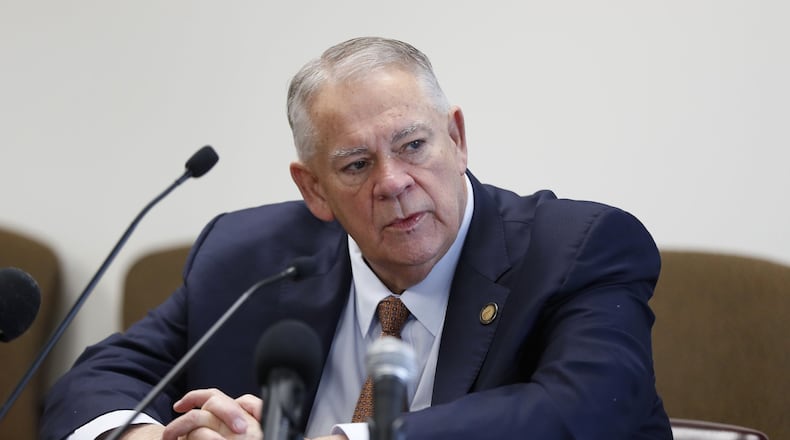Georgia House Speaker David Ralston moved Thursday to extinguish talk of a cigarette tax hike during the upcoming 2019 General Assembly session.
The chairmen of the tax-writing committees in both the Senate and House had raised the possibility of major increases on cigarette and smoking products this session.
Georgia has among the lowest tobacco taxes in the country, and some states have raised taxes to help pay for public health programs, which spend tens of millions of dollars a year on smoking-related illnesses. Smoking-related illnesses are a huge drain on taxpayer-funded health care programs, officials say.
Ralston, a Republican from Blue Ridge, doesn't support the idea, which has gone nowhere in the General Assembly since lawmakers agreed to a modest increase in the mid-2000s.
“I don’t plan for it to become a viable issue,” said Ralston, who has been a smoker. “I am always hesitant to suggest raising taxes in any event, even on that.”
Ralston said news reports that smoking in the U.S. is on the decline “suggest to me that it would not be a dependable revenue stream.”
State Rep. Jay Powell, R-Camilla, who until this week was head of the tax-writing Ways and Means Committee, and Senate Finance Chairman Chuck Hufstetler, R-Rome, both raised the prospects of tax increases on smoking products in recent weeks.
A bill filed last year would have raised the excise tax on cigarettes from 37 cents a pack to $1.87.
Hufstetler, an anesthetist, acknowledged that while it was unlikely that legislation increasing the tax would pass without Ralston’s support, he believes it’s a topic that deserves attention.
“I would like to at least have a discussion about how severe the health care cost is to the budget,” he said.
Hufstetler said Georgia collects more than $200 million in tobacco taxes annually, but the U.S. Centers for Disease Control and Prevention estimates that the state’s Medicaid program pays out about $650 million for cigarette-related health care each year.
“The health care of smokers is heavily subsidized by non-users of tobacco,” he said. “We need to quit using our income tax money to subsidize this.”
During a press briefing Thursday, Ralston also echoed some of the comments made by House Appropriations Chairman Terry England, R-Auburn, about Gov.-elect Brian Kemp's campaign promise to give teachers $5,000 raises.
Such a pay raise would cost the state $750 million to $800 million, eating up much of the new revenue the government takes in most years.
“We’ve had some discussions with” the Kemp administration, Ralston said. “They are aware of my concerns in terms of the cost to the state.
“There are ways we can get to where we want to go,” he added, mentioning that the raises could be spread out over a few years, rather than doing them in one year. Gov. Zell Miller dramatically raised teacher pay in the mid- to late 1990s over four years, and Kemp is likely to do the same.
“I don’t think anyone is opposed to doing all we can to make sure we pay our teachers competitively,” he said. “It is just a question of what we can do within our means.”
Stay on top of what’s happening in Georgia government and politics at ajc.com/news/georgia-government/.
Keep Reading
The Latest
Featured





